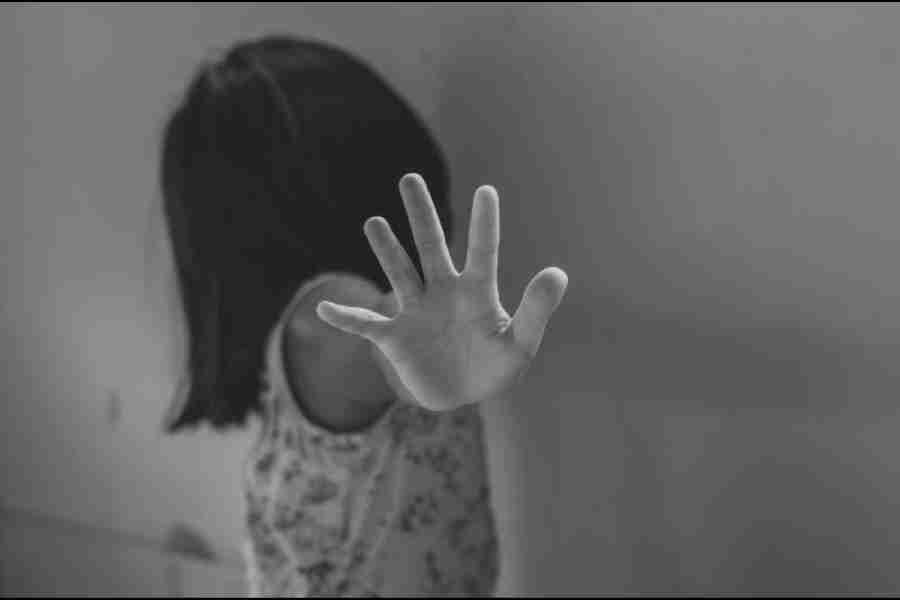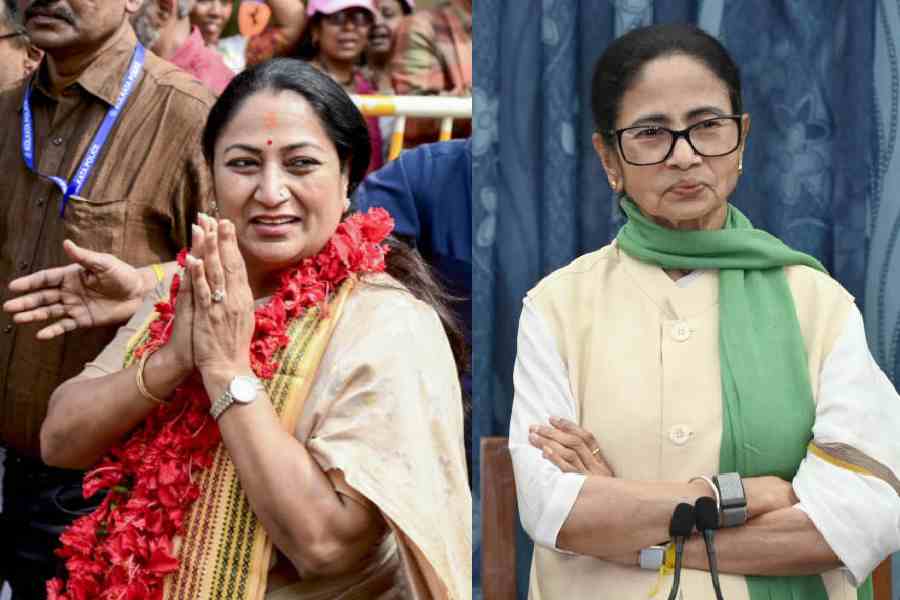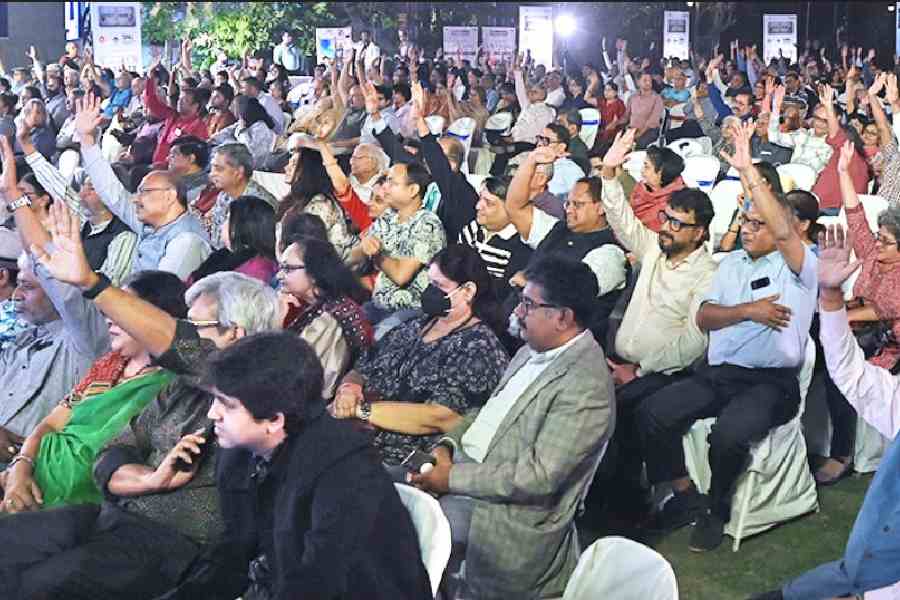 |
| Artistes enact a scene from Xowo Kota Manuh at Sankaradeva Kalakshetra on Sunday. Picture by UB Photos |
Feb. 5: The hands with which Dorje Norbu cut the bodies of countless villagers, each into 108 pieces, impassively shook when the body of his beloved Rijumba was laid before him. Dorje then asks his assistant to do what he cannot do himself.
Unlike burying and cremating, cutting off a human body into 108 pieces and throwing the parts into the river as last rites is a custom of the Monpa community of Arunachal Pradesh. The play Xowo Kota Manuh (The person who cuts human bodies) was presented to theatre-goers in the city today at Srimanta Sankaradeva Kalakshetra.
Directed by Pakija Begum, the artistes of Baa, a theatre group, performed two shows of the two-hour play at 3pm and 5pm, bringing the audience close to the customs of Monpa community which, as a member of the audience described “a learning experience.” The play will be staged at Rabindra Bhawan on February 13.
It is based on a novel of the same name written by Sahitya Akademi Award winner Y.D. Thongchi who hails from Arunachal Pradesh but writes in Assamese. The novel beautifully presents the peculiar custom of the Monpa community before Assamese readers.
Besides being a mirror of the Monpa community, the play presents how lives of common people were shattered by the India-China war in 1962 in Arunachal Pradesh — the worst affected state in the war. Dorje, the protagonist, himself lost most of his loved ones and later becomes so traumatic that he unconsciously kills his mother.
The life of thampas (persons who cut human bodies) is hard as they drink country liquor to resist acute emotional stress and their families live in penury. The play hails the peculiar funeral custom with a Buddhist nun expressing her last wish that her funeral be done in the traditional way. At the end of the play, the nun turns out to be Rijumba who Dorje once loved.
Anup Hazarika, who played the role of Dorje Norbu, said they invited two persons from Arunachal Pradesh to bring perfection to the play. “One of them is a good painter. They helped us in understanding the practice of Buddhism followed by the people of Arunachal Pradesh as well as other aspects,” Hazarika said. Veteran actor Pranjal Saikia, who sat in the audience, show said every theatre lover should watch the play . “Every production of Baa is very professional, research-based; presenting a novel in two-hours is not an easy task. The play is a good sign of the state’s drama industry,” Saikia said.










